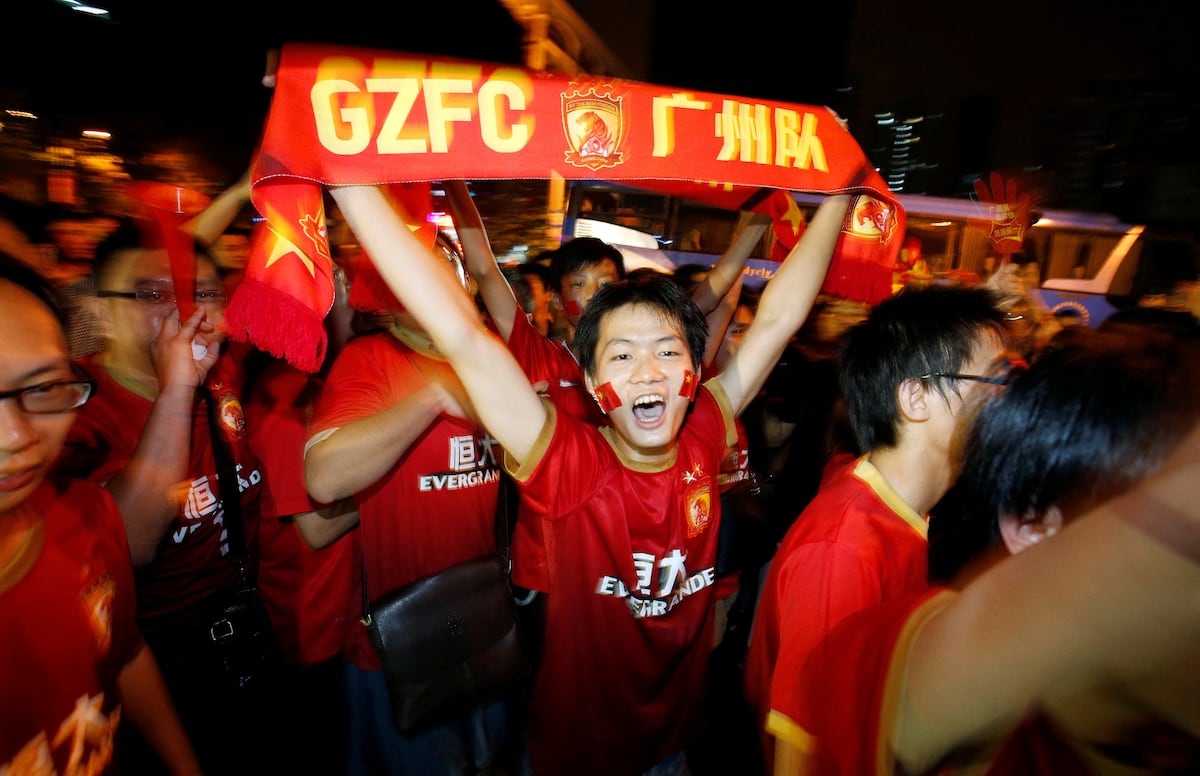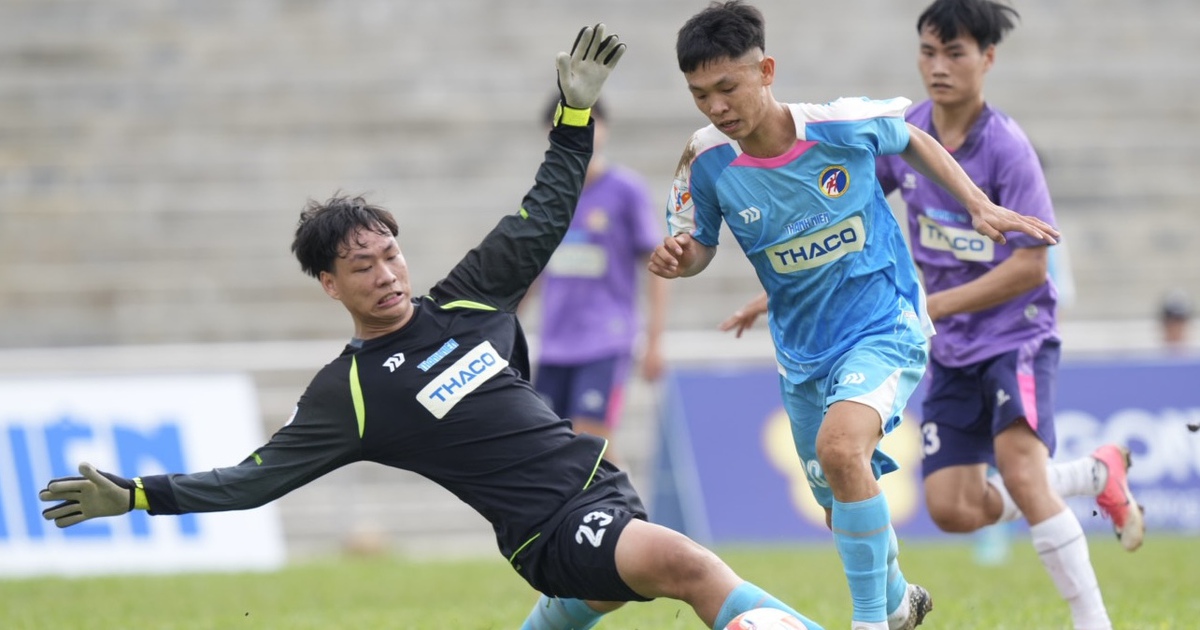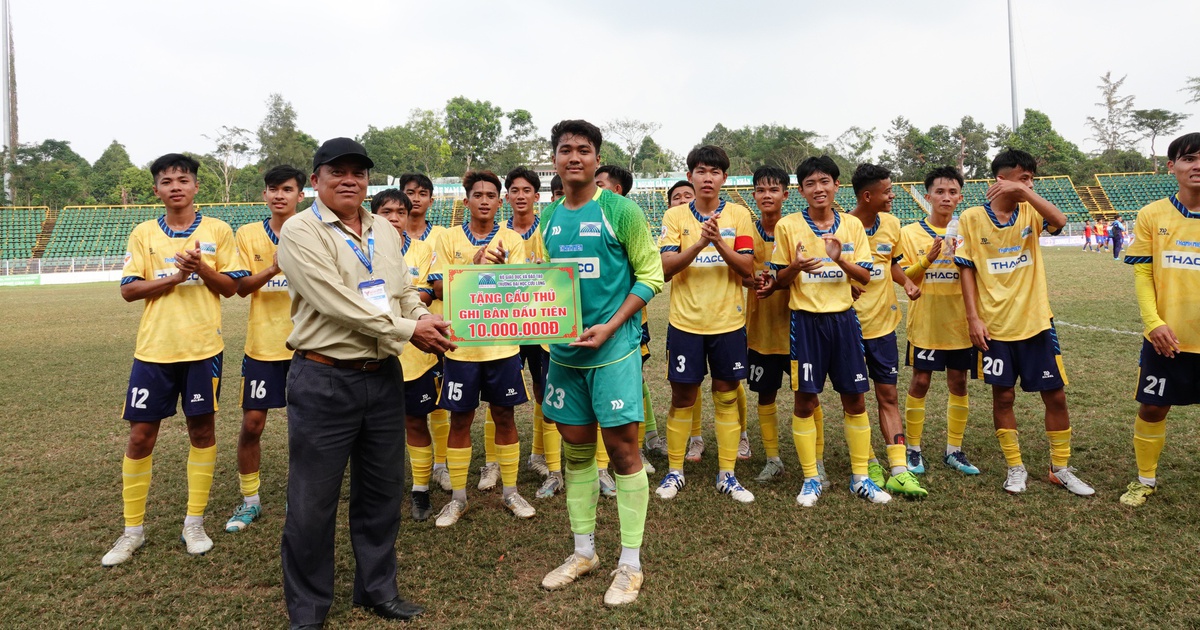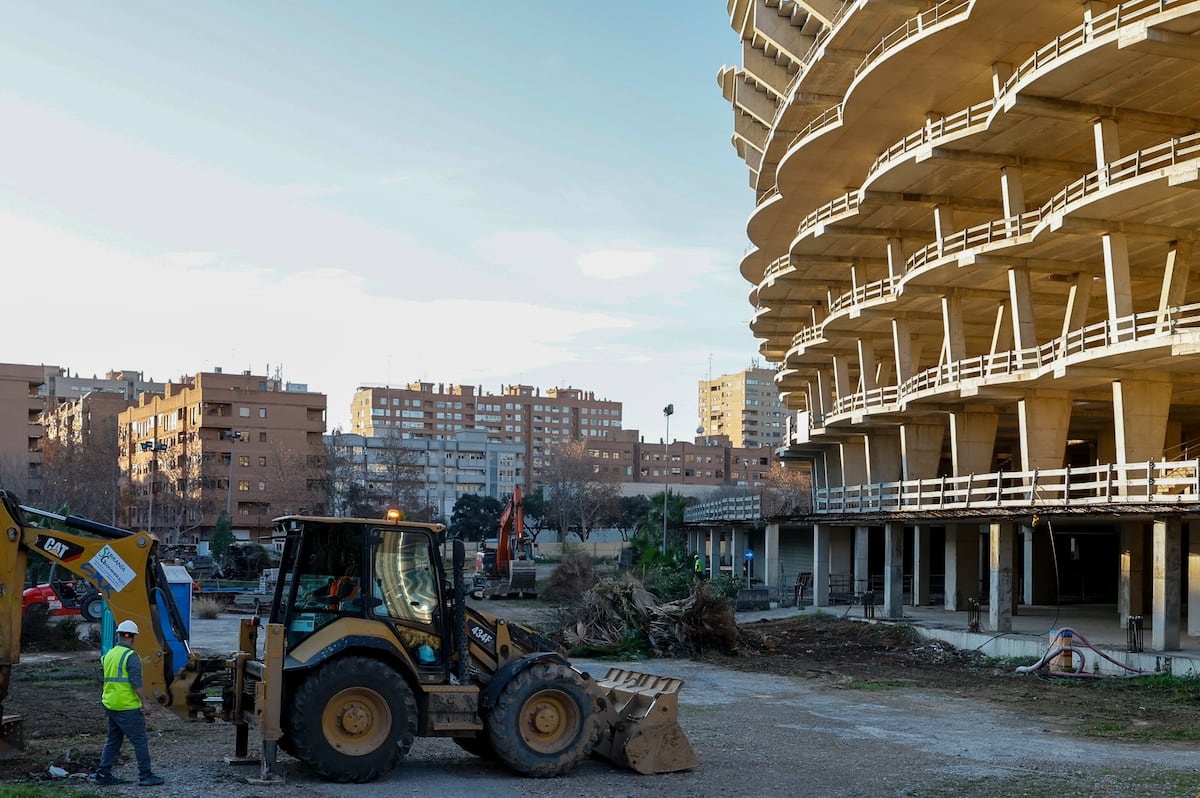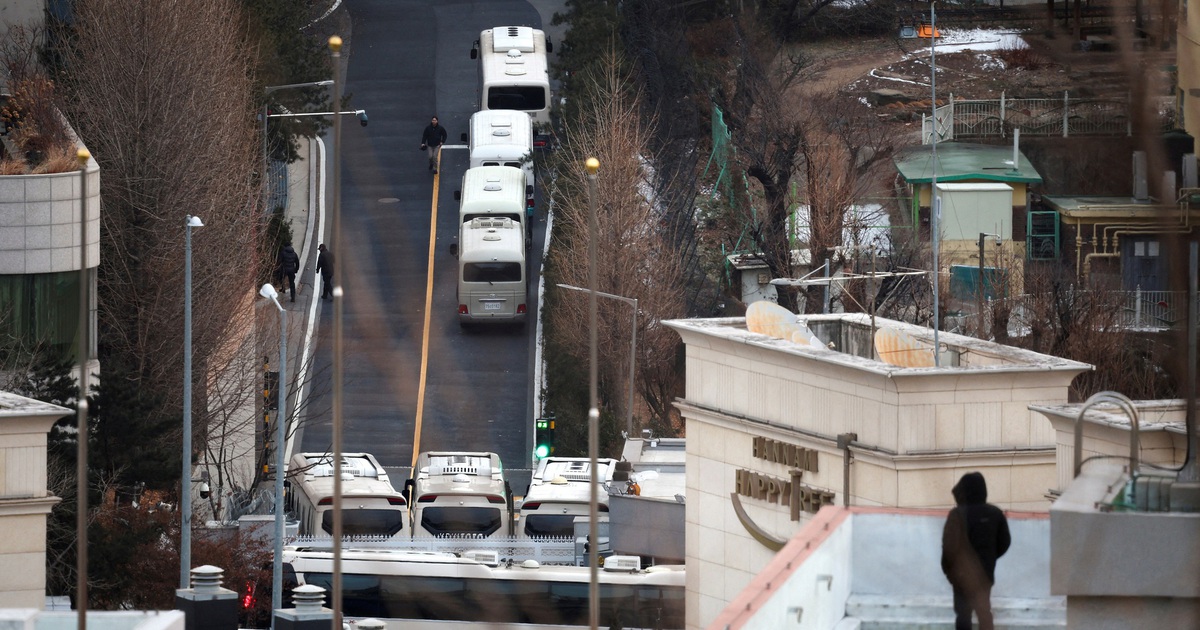Guangzhou FC, one of the most successful football teams in China, has been officially excluded this week from the Asian giant’s professional leagues, according to local media. It is the end of a saga with a predictable ending, since the history of this club runs parallel to that of the brick bubble that today grips Chinese finances: a vibrant mirage a decade ago, transformed into the Achilles heel of the economy. The team owned by the real estate giant Evergrande, a company currently in the liquidation phase, as decreed in 2024 by a Hong Kong court, attributed the decision of the Chinese Football Association to its heavy debts.
“The club tried various means to gain admission to the leagues. Unfortunately, the funds raised were insufficient to pay off the debts accumulated over the years,” Guangzhou FC stated in a statement last Monday, after the ACF decision. Local media have speculated that the team once considered the flagship of Chinese professional football, the team that won eight national leagues between 2011 and 2019, two Asian Champions Leagues, and attracted renowned figures at the stroke of a checkbook ― from World Cup-winning Italian coach Marcello Lippi to Brazilian star Robinho – will be dissolved after refusal.
Its dazzling rise was linked to the years of unbridled Chinese growth and the boom of construction. Its fall coincides with the ravages of the brick slowdown: in November, new home prices accumulated 18 consecutive months of falls, according to the latest published statistics. This sector came to represent close to a third of Chinese GDP and was for years a great money-making machine. The frenzy gave birth to brick empires, and some of these empires bet on football. This was the case of the Evergrande company. This company, which became one of the largest real estate companies in China, acquired the club in the capital of Guangdong province in 2010, which already had decades of history. With the checkbook in front of him he catapulted him to the top. He also gave it his name for a few years, Guangzhou Evergrande, until the federation banned sponsorship of the team names.
Today, the Evergrande company is in the liquidation phase, with a debt of 300 billion euros, thousands of unfinished homes, grayish skeletons scattered throughout the country, and its founder, Hui Ka Yan, once the richest man in China, It was stopped in 2023. Already in 2022, the team had been relegated due to financial problems to the second division, where it has played the last two seasons.
Its end represents the epilogue of a sporting era, of a way of conceiving football in China based on million-dollar signings. In the People’s Republic there is no football tradition, and the level remains questionable. The matches of the Super League, the first division, can be soporific, slow and clumsy by the standards of, say, a Spaniard. The national team has not qualified for any World Cup since the founding of the People’s Republic in 1949, except for the 2002 World Cup: it lost all of its group stage matches and returned home without scoring a single goal.
Chinese President Xi Jinping, a football fan, wanted to promote this sport. In 2011, a year before he came to power, he declared that he had three wishes: to host a world championship, for the national team to qualify for another world championship, and to win the world cup. Beijing established programs to promote the practice from childhood with the intention of developing players from the base. The Government also glimpsed the enormous economic potential of a mass sport.
The push coincided with years of money pouring in from rich investors intent on becoming owners. The 2010s are the years of greatest success for Chinese Super League teams, led by Guangzhou’s triumphs in the Asian Champions League in 2013 and 2015, when the club fielded an expensive squad with high-level foreign players. In this golden period, they finished fourth in the club World Cup, signed an agreement with Real Madrid to create the largest soccer school in the country, with plans to admit up to 10,000 students, and revealed their plans to build a stadium with a capacity for 80,000. spectators.
Guangzhou FC’s signings were then similar to those seen in recent years from Saudi Arabia or the United States. Italian coach Lippi, hired in 2012, was the architect of three leagues, a Chinese cup, and the Asian Champions League (he later went on to coach the Chinese team); Then came Luiz Felipe Scolari, the coach who had guided Brazil to win the World Cup in 2002: he won seven titles in two and a half years.
They signed Argentine midfielder Darío Conca in 2011 for 10 million dollars, the most expensive contract in the history of Chinese football until then, according to the press at the time; They signed Paulinho, former Tottenham and Barcelona midfielder; to Colombian forward Jackson Martínez (in 2016, after his year at Atlético de Madrid); to Robinho, who had played for Real Madrid, Manchester City and AC Milan.
The phenomenon was not exclusive to Guangzhou FC. Players with a certain reputation ended up in other teams: the Argentine Carlos Tévez, for example, went to Shanghai Shenhua. Drogba, Anelka, Mascherano arrived in China… There were juicy numbers. Spending on transfers experienced a meteoric increase of 19,950% between the 2009/2010 and 2016/2017 seasons, reaching a historical maximum of 538.08 million euros, fourth place in the world, according to EFE.
That bubble, like the housing bubble, has burst in recent years. Almost like a symbol of the end of the era, the Brazilian Oscar, who arrived at Shanghai Port in 2017 as the most expensive signing in the competition (60 million euros), also said goodbye to the club this week, after eight seasons in which It is estimated that he has won 175 million euros, and five titles.
There are hardly any big names left in Chinese football. And yes, a trail of pufos, corruption and arrests: the digestion of the boom years. The beginning of the end came around 2018, after a luxury tax was introduced that limited big signings; A salary cap of 3 million euros per year was also established, which discouraged international stars. Then came the pandemic, a fatal blow for dozens of clubs: 16 closed in the first year of the coronavirus (one of them, Liaoning Whowin, the only team other than Guangzhou capable of winning the Asian Champions League, once, in 1990); Covid also aggravated the situation of the real estate sector and the economy in general; many of the big investors vanished. And its effects have also been noted further afield: in May 2024, the American fund Oaktree became the new owner of Inter Milan after the majority shareholder, the Chinese conglomerate Suning, dedicated to appliance franchises, was unable to repay a loan of 395 million euros on time.
Meanwhile, arrests and convictions of executives in the world of football have multiplied. The latest renowned case has been that of star Li Tie, who coached the men’s team between 2020 and 2021. He was sentenced in December to 20 years in prison for having accepted bribes between 2015 and 2019, when he worked for local football clubs. . In March, the former president of the Chinese Football Association (CFA), Chen Xuyuan, was sentenced to life in prison for accepting just over €11 million in bribes between 2010 and 2023, according to Xinhua.
Football times in China have changed, or so the authorities claim. The ACF has this year called on all national clubs to invest sensibly and focus more on the youth system and more sustainable operations to achieve long-term success. “Only by keeping an eye on the long term, maintaining a healthy financial situation and investing patiently in the youth academy will clubs be able to carve out a solid future,” the organization said in a statement reported by the newspaper. ChinaDaily.

